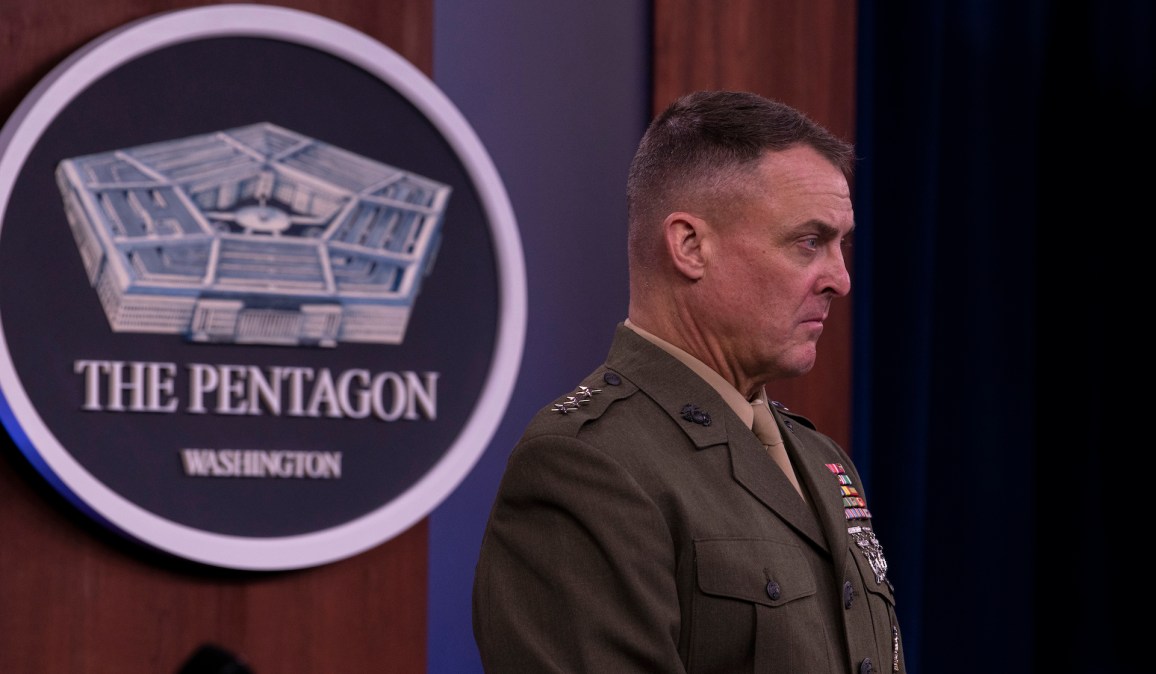Head of DOD artificial intelligence command warns Pentagon must improve to beat China on AI

The U.S. military’s top expert on artificial intelligence (AI) said Wednesday that the Pentagon must up its game to ensure American supremacy in a future era where artificial intelligence will determine success on the battlefield.
China aims to dominate the world in the AI space by 2030, the Pentagon’s Joint Artificial Intelligence Director Lt. Gen. Michael Groen told an Atlantic Council-convened audience gathered for a discussion of AI in national security. Groen said that AI will be a $16 trillion industry by 2030, and will raise GDP significantly for both China and the U.S.
Groen said DOD must reinvent itself to meet the challenge, arguing that the Pentagon will need to do more to bring the branches together and act as a “doer” instead of a coordinating body. Citing Amazon founder Jeff Bezos’s 2002 directive that all Amazon components must work with one organization-wide data set, Groen said that in the same way the Pentagon must lead its various components to be on more unified footing.
“It’s time for the Department of Defense to have a similar focus on using data to solve problems, to think about their problems through a data lens … overcoming the cultural obstacles to actually become a competitive enterprise that can outfight any opponent and has the same level of productivity and efficiency that we desire for our taxpayers,” Groen said. “Clearly, the competition is around us.”
“It’s time for the Department of Defense to have a similar focus on using data to solve problems, to think about their problems through a data lens … overcoming the cultural obstacles to actually become a competitive enterprise that can outfight any opponent.”
lt. gen. Michael Groen, director of the department of defense’s Joint artificial intelligence center
Acknowledging the difficulties inherent to adaptation for an agency bogged down by bureaucracy, Groen said he is focused on improving DOD’s efficiency as it seeks to take on the Chinese AI machine.
“Implementation in the department, of course, is always a challenge as new technology meets legacy processes, legacy organizations and legacy technology,” Groen said. “Implementation, of course, is the key to successful transformation and implementation is extraordinarily challenging as artificial intelligence and related technologies cross cut not just service lines, but almost every procedural line or process line across the department.”
Groen said China is now executing its 14th five-year plan to meet its goal for AI supremacy by 2030 while the U.S. is now building its 14th AI-based program objective memorandum (POM), which refers to how DOD allots future funding to meet its strategic objectives. Suggesting that the U.S. and China are locked in a neck at neck battle for AI dominance, Groen said, “those dates, maybe uncomfortably, maybe comfortably, overlap to quite a degree.”
Groen’s remarks were made at an event at which the Atlantic Council’s Scowcroft Center for Strategy and Security unveiled a new report focused on artificial intelligence in national security and defense. The report warns that “without intentional, coordinated, and immediate action, the United States risks falling behind competitors in the ability to harness game-winning technologies that will dominate the kinetic and non-kinetic battlefield of the future.”

